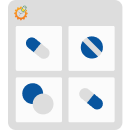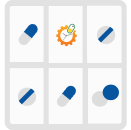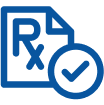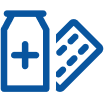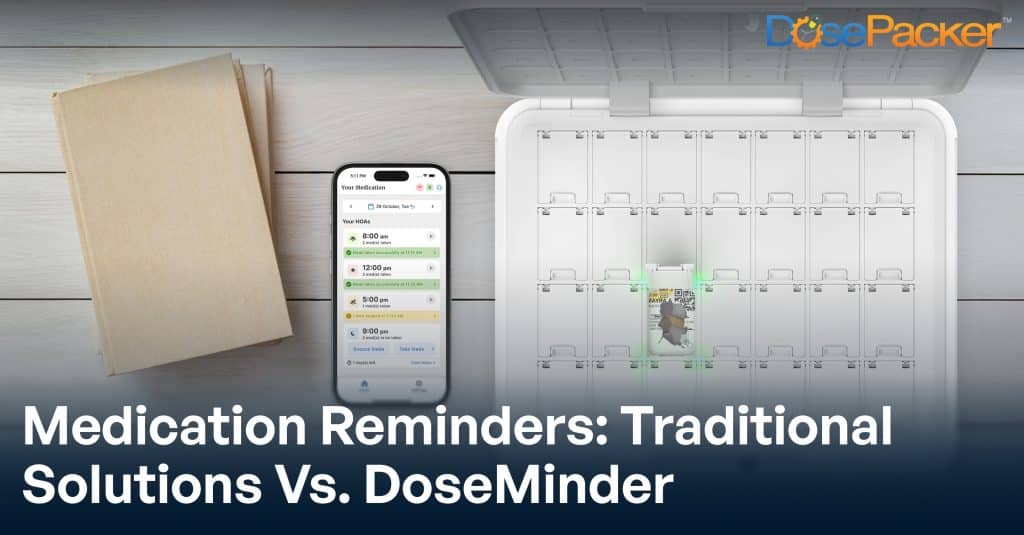- Understanding Comprehensive Medication Review (CMR)
- The CMR Process: What To Expect
- The Powerful Benefits Of Comprehensive Medication Reviews
- Who Should Get A Comprehensive Medication Review?
- Enhancing Your CMR With Modern Medication Management
- Questions To Ask During Your CMR
- Taking Action: Your Next Steps
- Frequently Asked Questions
Unlock the latest in medication management technology and grow your care community with us.

Every year, more than 1.5 million Americans visit emergency departments because of adverse drug events, with nearly 500,000 needing hospitalization. Medical errors rank as the third leading cause of death in the United States, affecting approximately 400,000 hospitalized patients annually.
The encouraging news? Most of these incidents can be prevented through proper medication management and comprehensive medication reviews. If you’re juggling multiple medications or caring for someone who is, understanding what a Comprehensive Medication Review (CMR) entails could make a significant difference.
Ready to take control of your medication safety?
Understanding Comprehensive Medication Review (CMR)
A Comprehensive Medication Review is a systematic, pharmacist-led service that evaluates all medications a patient takes, including prescription drugs, over-the-counter medications, vitamins, and supplements. The goal is to identify and resolve medication-related problems before they cause harm.
CMRs are offered annually to eligible Medicare Part D beneficiaries through the Medication Therapy Management (MTM) program. But the benefits reach far beyond Medicare recipients. Anyone taking multiple medications, particularly those managing chronic conditions, can benefit from this thorough evaluation.
Unlike a quick pharmacy consultation when picking up a prescription, a CMR is an in-depth, one-on-one conversation with a qualified pharmacist who spends focused time understanding your complete medication picture, health conditions, and personal health goals.
The CMR Process: What To Expect
Before Your CMR Appointment
Preparation makes all the difference in getting value from your comprehensive medication review. Gather all your medications, including:
- All prescription medications from every pharmacy you use
- Over-the-counter drugs (pain relievers, allergy medications, sleep aids)
- Vitamins, minerals, and dietary supplements
- Herbal products and alternative remedies
- Eye drops, inhalers, and topical medications
Create a list that includes the name of each medication, its dosage, frequency, and the reason for taking it. If you’re using a medication organizer system, such as DosePacker’s innovative medication packaging solutions, bring information about your current routine and any challenges you face with medication adherence.
During the Review
Your pharmacist will conduct a thorough interview covering several areas:
- Medication Assessment: Review each medication’s purpose, effectiveness, potential side effects, and proper administration technique. The pharmacist checks for duplicate therapies, drug interactions, and medications that may no longer be necessary.
- Health Status Review: Discussion of your current health conditions, recent hospitalizations, allergies, and any medication-related concerns or symptoms you’ve experienced.
- Lifestyle Factors: Evaluation of how your daily routine, diet, physical activity, and other lifestyle factors may affect the effectiveness of your medication or create potential interactions.
- Adherence Barriers: Identification of any obstacles preventing you from taking medications as prescribed, whether financial constraints, side effects, confusion about dosing, or simply forgetting doses.
After Your Review
Following your CMR, you’ll receive two documents:
- Personal Medication Record (PMR): A comprehensive, easy-to-read list of all your current medications, including what each one is for and how to take it properly.
- Medication Action Plan (MAP): A personalized plan outlining specific steps to optimize your medication therapy, such as adjustments to timing, lifestyle modifications, or medications that need provider discussion.
The Powerful Benefits Of Comprehensive Medication Reviews
Research indicates that comprehensive medication management enhances clinical outcomes, improves patient adherence, reduces drug therapy-related problems, and lowers healthcare costs. Here’s how CMRs make a tangible difference:
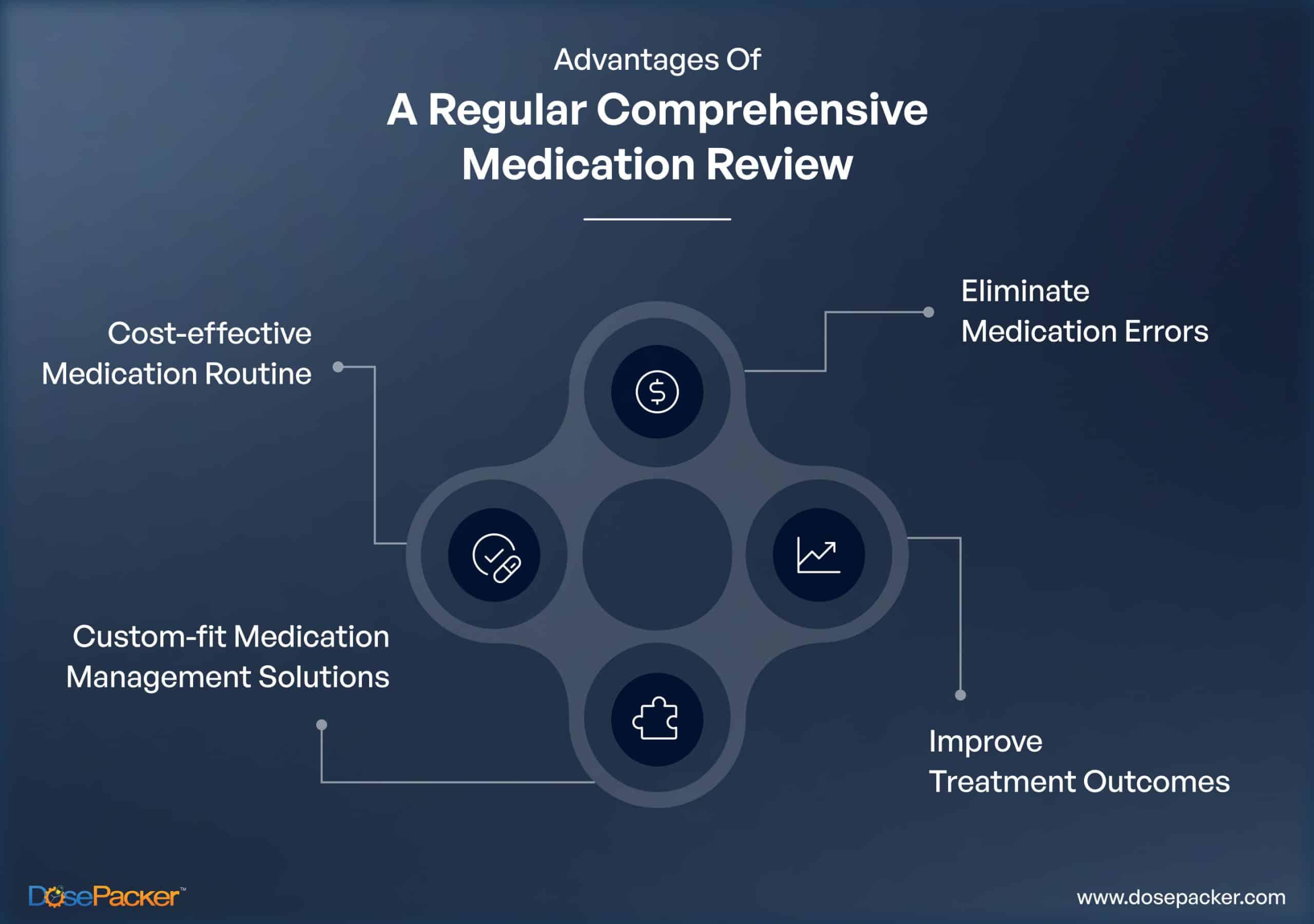
Reducing Medication Errors and Adverse Events
With medication errors occurring at an unprecedented rate, having a pharmacist systematically review your complete medication regimen can catch dangerous combinations, inappropriate dosages, and contraindications before they cause harm.
Optimizing Therapeutic Outcomes
Many patients don’t realize they’re taking medications that are no longer effective or necessary. CMRs identify these opportunities to streamline your medication regimen, potentially reducing pill burden while maintaining or improving health outcomes.
Cost Savings
Preventing just one emergency department visit or hospitalization through better medication management can save thousands of dollars. Pharmacists often identify opportunities to switch to equally effective but more affordable medication options, whether through generic alternatives or therapeutic substitutions.
Personalized Education
Understanding why you’re taking each medication and how it works puts you in the driver’s seat of your healthcare. This knowledge enhances adherence and enables you to identify potential problems early.
Who Should Get A Comprehensive Medication Review?
While Medicare Part D eligibility criteria have specific requirements, CMRs benefit anyone in these situations:
- Multiple Chronic Conditions: If you’re managing diabetes, heart disease, hypertension, COPD, asthma, or multiple chronic conditions simultaneously, a CMR ensures that all your medications work together effectively.
- Polypharmacy Patients: Taking four or more medications significantly increases your risk of drug interactions and adverse events. Research indicates that people prescribed five or more drugs are 30% more likely to experience medication errors, with this risk jumping to 38% for those aged 75 and older taking five or more medications.
- Recent Hospital Discharge: Medication regimens often change during hospitalizations. A CMR after discharge helps verify smooth transitions and prevents medication discrepancies.
- New Diagnoses: Initiating treatment for a new condition necessitates careful integration with existing medications to prevent interactions and ensure optimal outcomes.
- Medication Adherence Challenges: If you frequently forget doses, find your medication routine confusing, or struggle with organizing multiple medications, a CMR combined with smart medication management tools can transform your experience.
Enhancing Your CMR With Modern Medication Management
While comprehensive medication reviews provide expert clinical guidance, implementing and sustaining the recommended changes requires practical tools and systems. This is where modern medication management solutions become valuable.
Traditional pill organizers can help, but they lack the intelligence and accountability features that prevent errors. Innovative medication packaging systems, medication reminder technologies, and integrated pharmacy solutions work in harmony with CMR recommendations, enabling you to implement and maintain the optimized medication regimen your pharmacist has developed.
Consider solutions that offer:
- Automated medication packaging organized by date and time
- Visual verification to reduce wrong medication errors
- Integration with pharmacy records for seamless updates
- Caregiver coordination features for family involvement
- Adherence tracking to identify patterns and problems
Questions To Ask During Your CMR
Maximize the value of your comprehensive medication review by asking these questions:
- Are any of my medications duplicating the same therapeutic effect?
- Could any of my symptoms be side effects of my medications?
- Are there more affordable alternatives to any of my current medications?
- What should I do if I miss a dose of each medication?
- Are there specific foods, beverages, or other medications I should avoid?
- How will I know if my medications are working effectively?
- What side effects should prompt me to contact my doctor immediately?
- Can my medication schedule be simplified to improve adherence?
- Are there any medications I’m taking that might no longer be necessary?
- What medication management tools or systems do you recommend?
Taking Action: Your Next Steps
Comprehensive medication reviews represent a critical but often underutilized healthcare service. Whether you’re eligible for a Medicare-covered CMR or seeking this service independently, taking this proactive step can prevent serious health complications, reduce costs, and improve your quality of life.
Don’t wait for a medication-related problem to occur. If you’re taking multiple medications, schedule a comprehensive medication review with your pharmacist. Please come prepared with your complete list of medications, any health concerns, and any questions you may have. Be honest about any challenges you’re experiencing with your current regimen.
And here’s the thing: implement the recommendations. The insights from your CMR only create value when translated into consistent action. This is where reliable medication management systems make all the difference between good intentions and actual improved outcomes.
Take charge of your medication safety today. Discover how DosePacker’s smart medication packaging can help you implement your pharmacist’s recommendations and maintain optimal medication adherence.
Frequently Asked Questions
1. Is a CMR free?
For eligible Medicare Part D beneficiaries, comprehensive medication reviews are provided at no cost as part of the MTM program. Non-Medicare patients should check with their insurance provider or pharmacy about costs; however, many pharmacies offer this service at a low or no cost.
2. How long does a CMR take?
A thorough comprehensive medication review typically takes 30-60 minutes, depending on the complexity of your medication regimen and the number of issues identified.
3. Can I have a CMR if I’m not on Medicare?
Yes. While CMRs are a Medicare Part D benefit for eligible beneficiaries, anyone can request a medication review from their pharmacist. Some private insurance plans may also cover medication therapy management services.
4. How often should I get a CMR?
Medicare offers eligible beneficiaries one comprehensive medication review annually. Still, consider an additional review whenever you experience significant changes, such as new diagnoses, hospital discharge, multiple medication changes, or persistent medication-related problems.
5. What’s the difference between a CMR and a regular pharmacy consultation?
A regular pharmacy consultation typically focuses on a single new prescription, covering basic usage instructions and prominent warnings. A comprehensive medication review thoroughly evaluates your entire medication regimen, examining all medications, supplements, potential interactions, therapeutic appropriateness, and opportunities for optimization. It’s scheduled, comprehensive, and results in documented action plans.
